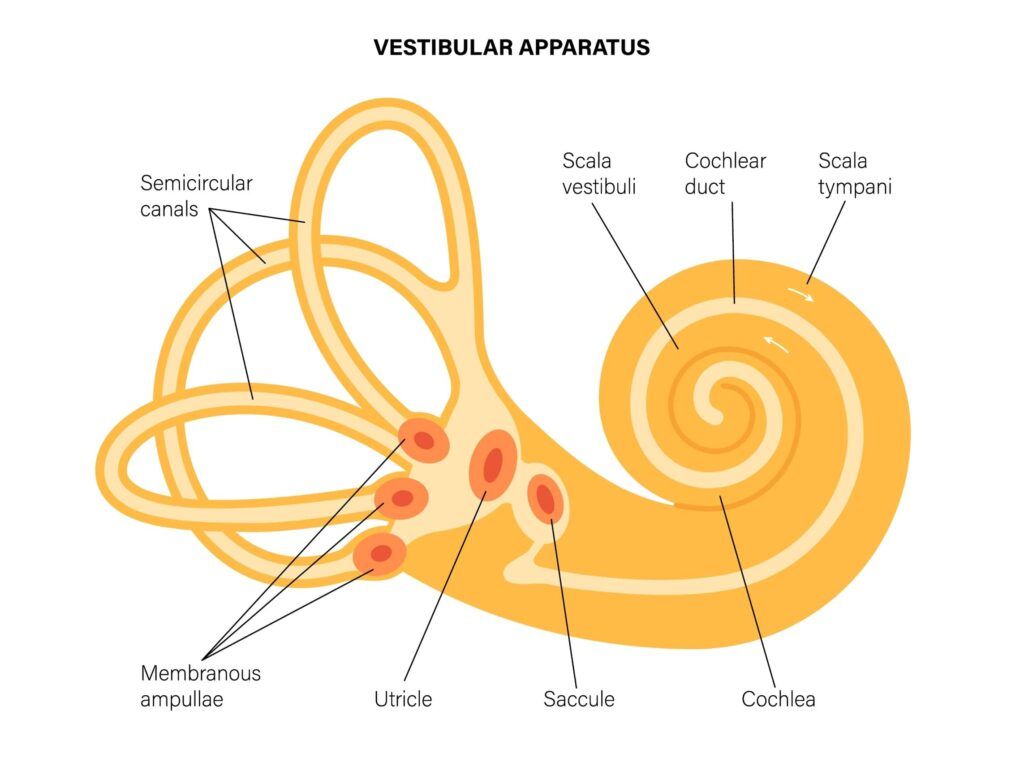Balance is a fundamental aspect of our daily lives, often taken for granted until it starts to falter. Maintaining proper balance is a complex process that involves various systems within the body, particularly the neurological system. When balance problems arise, they can significantly impact an individual’s quality of life and overall well-being. In this blog, we will explore neurological balance problems, their potential causes, and when it is essential to seek the expertise of a neurologist for diagnosis and treatment.
The Importance of Balance
Balance is an intricate interplay between sensory input, the brain, and the body’s musculoskeletal system. This complex system allows us to perform everyday activities with ease, from walking and standing to more dynamic movements like running or playing sports. When something disrupts this delicate equilibrium, it can result in a range of issues, including dizziness, vertigo, unsteadiness, and falls.
Common Causes of Neurological Balance Problems
Neurological balance problems can be caused by a variety of factors, some of which may be temporary and benign, while others may be indicative of a more serious underlying condition. Here are some common causes of balance problems:
Inner Ear Disorders:

- Benign Paroxysmal Positional Vertigo (BPPV): BPPV is one of the most common causes of vertigo and balance problems. It occurs when tiny calcium particles in the inner ear become dislodged and disrupt the normal balance signals sent to the brain.
- Meniere’s Disease: Meniere’s disease is a chronic inner ear condition characterized by recurrent episodes of vertigo, tinnitus (ringing in the ears), and hearing loss.
- Vestibular neuritis and labyrinthitis are viral infections that affect the inner ear and the vestibular nerve. They can cause vertigo, dizziness, and balance issues.
Neurological Disorders:
- Multiple Sclerosis (MS): MS is an autoimmune disease that affects the central nervous system, including the brain and spinal cord. Balance problems can occur due to damage to the nerve fibers that control coordination and spatial awareness.
- Parkinson’s Disease: Parkinson’s disease is a progressive neurodegenerative disorder that can lead to balance and gait disturbances as it affects the basal ganglia, which plays a role in motor control.
- Peripheral Neuropathy: Peripheral neuropathy refers to nerve damage in the peripheral nervous system, which can affect balance and coordination. It is often associated with conditions like diabetes.
- Cerebellar Disorders: Conditions that affect the cerebellum, such as cerebellar ataxia or tumors, can lead to coordination and balance problems.
Medications:
Certain medications, particularly those that affect the central nervous system, can cause dizziness and balance problems as side effects.
Orthopedic Problems:
Musculoskeletal issues, including joint problems or muscle weakness, can disrupt the body’s ability to maintain balance.
Infections:
Some infections, like ear infections or certain viral illnesses, can impact the inner ear or brain and lead to balance disturbances.
Clumsiness or Balance Problems?
Distinguishing between clumsiness and a balance problem can sometimes be challenging, as both can manifest with similar signs and symptoms. However, there are several key factors and considerations that can help you differentiate between the two:
Frequency and Persistence:
- Clumsiness: Occasional clumsiness or minor balance issues may be a common occurrence and not necessarily indicative of a medical condition. Everyone can have moments of clumsiness.
- Balance Problem: If balance problems are frequent, persistent, or progressively worsening over time, it may suggest an underlying issue with the neurological or musculoskeletal system.
Severity:
- Clumsiness: Mild clumsiness, such as tripping occasionally or momentarily losing balance, is typical and may not be a cause for concern.
- Balance Problem: Significant and severe balance problems, such as frequent falls, difficulty maintaining equilibrium while standing or walking, or a feeling of unsteadiness even during routine activities, may indicate a more serious balance disorder.

Associated Symptoms:
- Clumsiness: Pure clumsiness often occurs without other neurological symptoms. It may be related to momentary distractions or lack of coordination.
- Balance Problem: Balance problems that are due to underlying neurological issues may be accompanied by other symptoms, such as dizziness, vertigo, numbness or tingling, weakness in the limbs, changes in vision, or speech difficulties.
Onset and Progression:
- Clumsiness: Clumsy moments tend to have a specific cause, such as distraction or fatigue, and they are generally temporary and non-progressive.
- Balance Problem: Balance problems related to neurological issues may have a sudden onset or a gradual progression over time, often with no obvious external cause.
Age and Risk Factors:
- Clumsiness: Occasional clumsiness can occur in people of all ages and is more common in children who are still developing their coordination.
- Balance Problem: Neurological balance problems, especially those that worsen with age, may be more prevalent in older adults and individuals with certain medical conditions like Parkinson’s disease or multiple sclerosis.
Response to Rest and Recovery:
- Clumsiness: Clumsiness often improves with rest or focused attention on coordination and balance.
- Balance Problem: Neurological balance problems may persist or worsen regardless of rest or conscious effort to improve balance.
Underlying Health Conditions:
- Clumsiness: Simple clumsiness typically does not result from underlying medical conditions and does not require medical intervention.
- Balance Problem: If balance problems are suspected to be related to an underlying health condition or neurological disorder, it is advisable to consult a healthcare professional, such as a neurologist, for a proper evaluation and diagnosis.
While occasional clumsiness is a common experience and often not a cause for concern, persistent or severe balance problems, especially when accompanied by other neurological symptoms, should be evaluated by a medical professional. A healthcare provider can perform the necessary assessments and tests to determine whether a balance problem is due to an underlying medical condition and recommend appropriate treatment or interventions.
When to Consult a Neurologist
Not all balance problems require immediate attention from a neurologist. However, it’s essential to recognize when it’s time to seek specialized care. Here are some situations in which consulting a neurologist is advisable:
- Persistent or Recurrent Symptoms: If you experience persistent or recurrent balance problems that do not improve with time, you should consult a neurologist. This is especially important if your symptoms are affecting your daily life.
- Sudden Onset of Severe Symptoms: If you suddenly experience severe dizziness, vertigo, loss of coordination, or a feeling of being unsteady on your feet, it’s crucial to seek immediate medical attention. These symptoms could be a sign of a more serious neurological condition.
- Other Neurological Symptoms: If balance problems are accompanied by other neurological symptoms such as weakness, numbness, changes in vision, or difficulty speaking, it may indicate a more complex underlying issue that requires evaluation by a neurologist.
- Progressive Symptoms: If your balance problems are progressively worsening over time, it is a cause for concern. Neurologists can help identify the underlying cause and develop a treatment plan to manage or mitigate the condition.
- Risk of Falls: If you are at an increased risk of falls due to balance problems, especially if you are an older adult, it is advisable to consult a neurologist. Falls can lead to serious injuries and complications.
Conclusion
Neurological balance problems can significantly impact one’s daily life and well-being. It’s essential to pay attention to the symptoms, know when to seek help, and consult a neurologist when appropriate. Early diagnosis and intervention can often lead to effective management and improved quality of life. If you or a loved one are experiencing balance issues, don’t hesitate to reach out to a medical professional, as they can help determine the cause and provide guidance on the best course of action for treatment and rehabilitation.

Dr. Kashouty, a diplomate of the American Board of Psychiatry and Neurology (ABPN), practices general neurology with fellowship trained specialization in clinical neurophysiology. Dr. Kashouty finds the form and function of the nerves and muscles the most interesting part of neurology, which is what led him to specialize in neurophysiology with more emphasis on neuromuscular conditions. He treats all neurological diseases, but his main focus is to treat and manage headaches, movement disorders and neuromuscular diseases.




